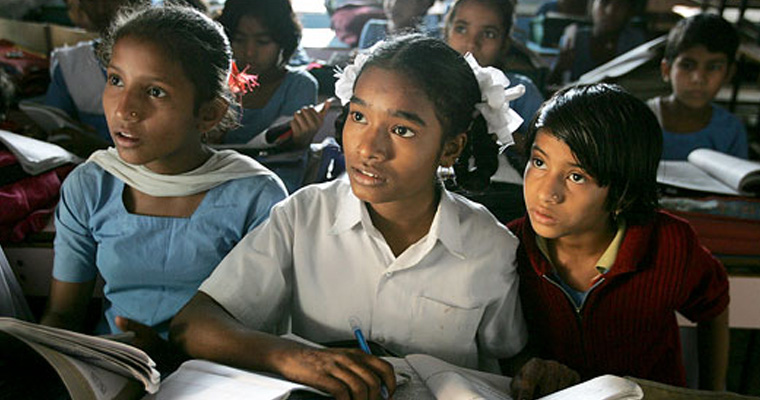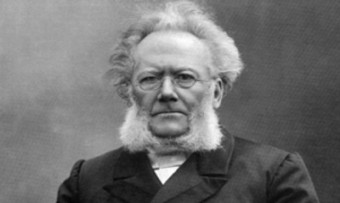Life would be much simpler for parents if children were asexual beings. Infants would not fondle their genitals at nappy changes, preschoolers would not compare body parts, school aged children would not ask questions about how babies are made and teenagers would not surf porn sites. Parents would be spared the anxiety of explaining about the birds and the bees. However, since each of the above situations arises out of curiosity, children would also have to be uninterested, apathetic beings. What a tragedy that would be! Thus, our sexuality, which begins from the moment of conception, is a gift to us.
Since the development of sexuality in children is as vital as the increase in height or the growth of their thinking skills, it is imperative that parents are prepared to do their job in fostering this area of development. In recent times parents have become increasingly paranoid about keeping their children sexually safe. The challenge is to find that precarious balance between making our children smart and aware, without scaring them away from human contact. This can best be done by following some simple steps.
1) Body science –children love labelling things. So when we teach them the correct names for body parts, we are tuning in to their natural desire to learn. Well before the child’s first birthday, parents start teaching them about their nose, eyes, ears, mouth and so on. It is the discomfort of parents that compels them to give nicknames to the genitals. This can often lead to confusion, as each household has their own unique nomenclature system. Using the scientific names leads to clarity. So boys have penises and girls have vulvas, not noonoos and neenees respectively (or vice versa!)
2) Teach children to trust their feelings. We feel uncomfortable when something is not quite right. This feeling helps us to stay safe. But being aware and listening to our feelings needs practice as adults tend to deny the feelings of children (e.g. “How can you be feeling hot when the fan is on full blast?”) Parents should validate children’s feelings especially when it comes to touch (e.g. “You don’t like it when people pinch your cheeks and hug you too tight”) Our feelings can help us make good decisions about what is right or not and keep us safe.
3) Teach children the concept of private and not private. We have private parts of the body, places, behaviours and topics of conversation. Private parts of the body are those covered by the underwear. Our private parts can only be touched by us. Private places are the bedroom or the bathroom with the door closed. Private behaviours are those which pertain to our private parts, where we have to remove our clothes and things we do for personal hygiene (like cleaning our nose using, shall we say, digital technology!). Private behaviors such as masturbation, when we touch our own private parts, should only be done in private places (of course, parents need to use discretion when deciding what age is appropriate to broach that topic). Private topics of conversation are those which we only speak to familiar trusted people. If parents feel unnerved by the prospect of their sexually aware child sharing his new-found knowledge with the entire world (as children are often wont to do at dinner parties), they can inform him that sexuality information is a private topic.
4) Children love secrets. Sexual abuse by known persons often continues as children are forced to promise that they will not break the ‘special secret’. Therefore all children must be instructed that anything to do with one’s safety should never be kept a secret. Never ever.
5) Teach children to wash their own private parts at least by the age of 3 years. This promotes the concept of personal boundaries, which helps us to recognise when someone is invading our personal space. There is the story of a 4 year old child who was returning unaccompanied from school in a “school auto-rickshaw”. She informed the driver that she wanted to urinate. He stopped at a secluded place and then insisted on washing her private parts, saying that she needed to be clean. The trust, dependence and ignorance of this innocent child allowed abuse to occur.
6) If the child feels uncomfortable about anything she should do 3 things – say no, get away and go tell someone. Parents can practise ‘what if’ scenarios with their child through role-play. Plan whom the child can go to at home, in school, at tuitions and in other situations in case they are harmed by anyone. Such practical preparation forestalls confusion which leads to fear and secrecy, often allowing abuse to carry on.
Sexuality is a precious asset. Protect your children by educating them about it and giving them the power of self knowledge and assertiveness.
5 Important Messages to Your Child
- Your body is precious and it belongs to you
- You have a right to say ‘No’ to anything that makes you uncomfertable
- Never keep a secret about anything that involves your Safety
- It is never your fault if someone hurts you
- You have a right to be protected
.
.
.





